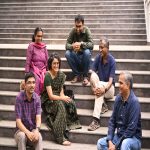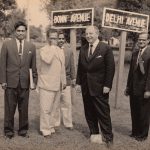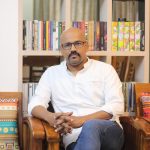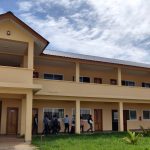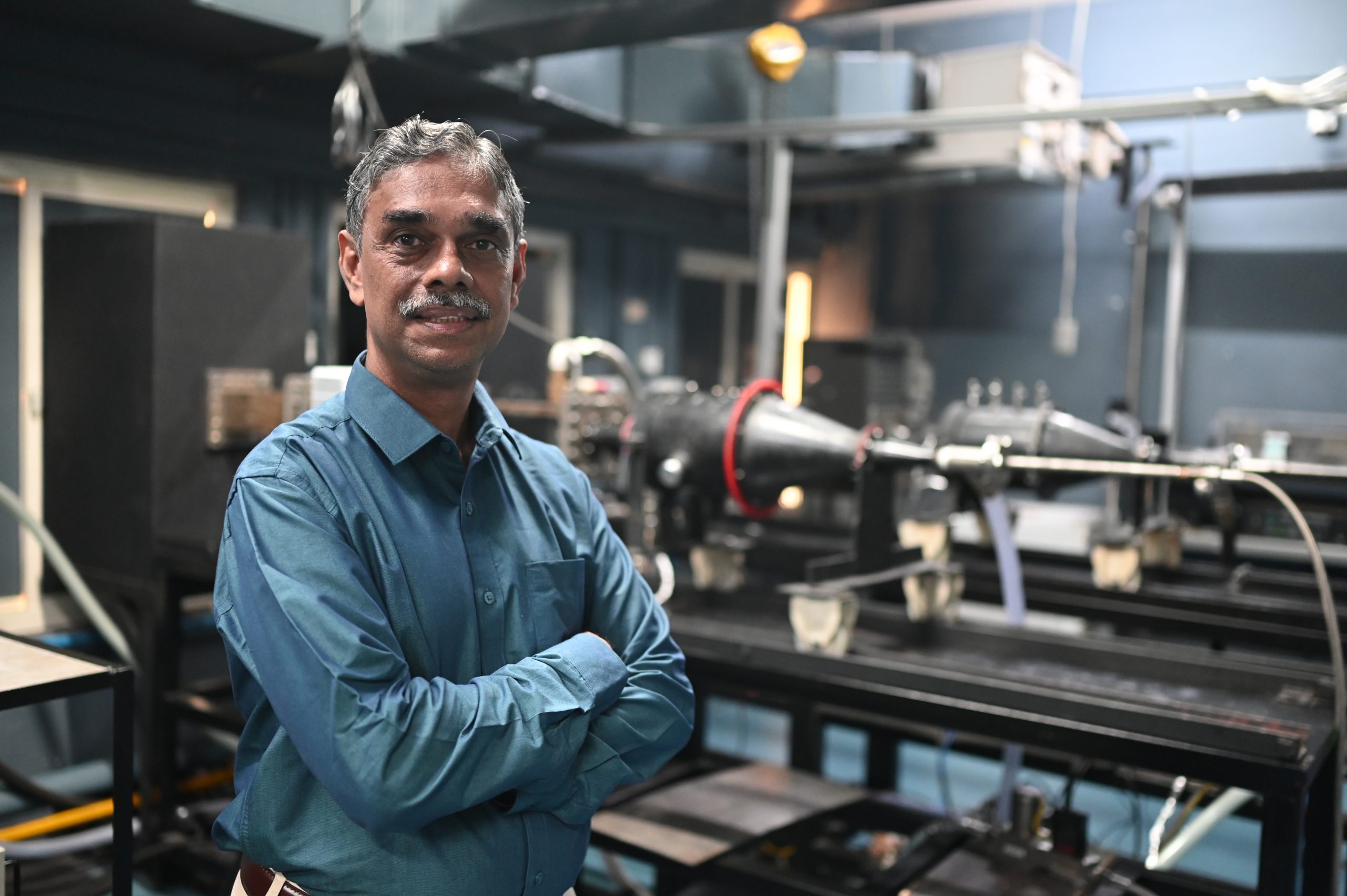Prof. R.I Sujith is a decorated engineer, scientist and inventor. His lab is filled to the brim with measurement instruments, lasers, tubes, burning flames, and of course, that unbridled energy that is a hallmark of the Sujith research group. Tucked away in a far corner of the IIT Madras campus, this aerospace engineering professor’s space tells a unique story of resilience, positive thinking, and a go-get-this attitude. It was our pleasure to sit down with Prof. Sujith, to talk about science and research, COVID-19 and the future.
Preeti Aghalayam
Thank you for agreeing to speak with Rendezvous. Tell us about your early days in IIT Madras.
I came to IIT Madras after my PhD abroad, in 1995. The campus and the country were very different at that time. I was keen to kickstart my own research group, but having gotten used to very sophisticated instrumentation at the Georgia Institute of Technology (in Atlanta, U.S), it was not clear what I could do here.
There was no access to fancy equipment or big funding. I was restless and visited several organisations to try to figure out practical research that I could do. I managed to get a few small projects from ISRO (Indian Space Research Organisation), DRDO (Defence Research and Development Organisation) and other organisations, and managed to produce results. Times were hard! There was no dark room, which was a requirement in our imaging studies, so my students and I had to work late into the night to do meaningful experiments.
We have often heard stories that you avoid buying off-the-shelf equipment and would rather build them yourself. Are these mere legends or the truth?
Well, because of the constraints on funding and the availability of certain specific instruments I needed for my planned research, there were situations early on when my students and I built devices ourselves, only buying components. For example, we made our own PIV (particle image velocimetry), and I worked with various technical staff to fix things when they were damaged due to the unreliable power supply. And the habit has stuck.
We do build a lot of things in my lab even today, although the research funding situation has eased significantly since 2000. I think that the degree of control and ownership you get from drilling into the details of these instruments are phenomenal. Needless to say, the learning is immense. For students and for me.
What about computers? At that time, you had both experimental and theory/ computational research coming out of your group. Perhaps theoretical research would have been easier and less expensive?
Computers were a rarity in those days! Every department had some computers of course, and a small computer lab, but nothing to do effective research with. I had a good hard think and blew up whatever meagre savings I had when I came back from the U.S, to buy myself computers. No regrets though, I think it was the right decision. I had come back to India to be with my family and to do good things for the country. Three decades later, that decision hardly pinches. In fact, it set the tone for my own ability to embrace many different directions in research.
So, it looks like after a few tumultuous initial years, you were on your way to fulfilling your dreams and achieving personal success (and accolades for IIT-M). Has it been that way? Smooth sailing after those initial years?
My experience overall has been an extremely positive one. My heart is completely filled with gratitude for IIT Madras and everyone around for helping me in every moment of need. But I do want to mention a few episodes in my journey. In the initial years, I was solving practical problems by using whatever access I had to money, equipment and students (several of them were undergraduates). But I did have my internal frustrations. One day, a senior professor, Prof. Kalyanaraman, asked me, “Sujith, will the next big thing in your field come from you?”
This wormed into my head and I have to say that it was a turning point for me. It was never my intention to go with the flow and coast along. I was hungry. I had a very long internal debate, several sleepless nights, and a few more discussions with Prof. Kalyanaraman. Ultimately, I ended up “rebooting” myself and my research.
The path we are on today is different; a much more aggressive, trail-blazing one. The science that emerges from my group today is full of fundamentals that define path-breaking discoveries. As an engineer, I am also keen to translate those discoveries into practical technologies. You know what put me on this new path? Not some big funding or prestigious awards bestowed upon me. I went deep within and discovered that the only thing you can change is yourself; the system becomes almost irrelevant then.
I sorted out my thoughts and ideas. I read a lot, made mind maps and started looking for money for the ideas I wanted to pursue, the ones I was convinced about. Things really fell in place. If I had waited for the world to change, to accommodate me and my ideas, it may have happened but would have taken aeons.
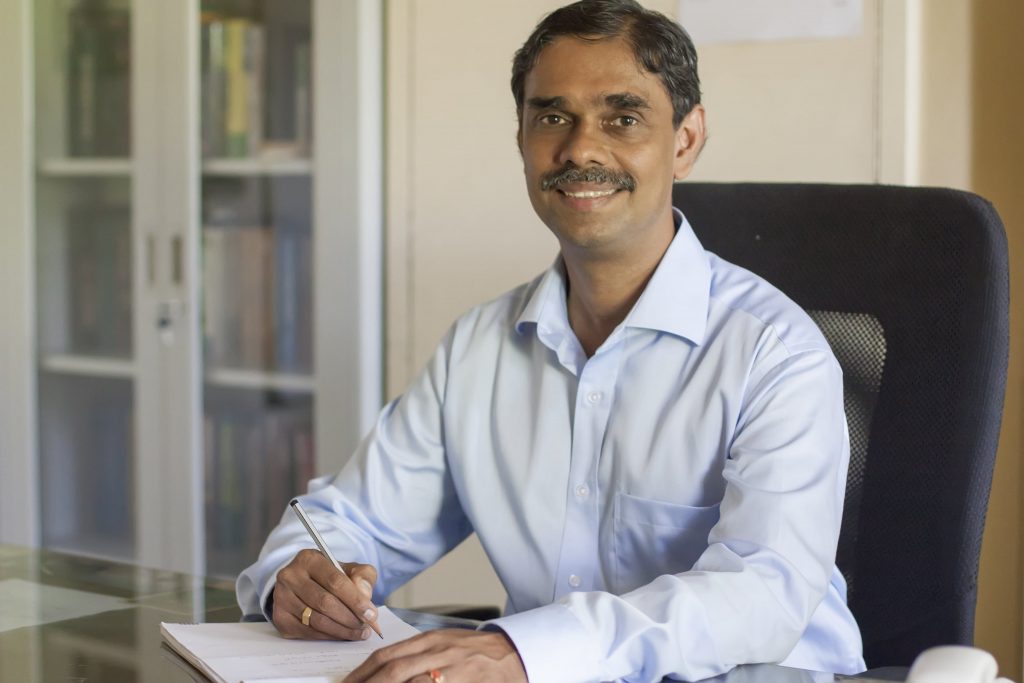
That’s really wonderful and refreshing to hear, Sujith. May we ask you a bit about your team? Oftentimes our ideas are stalled, because there is no one to take hold of them and work with us.
Here is a quote for you. Students at IIT Madras are the absolute best. They have breathtaking talent, an indomitable spirit and absolute commitment. Don’t let anyone tell you otherwise. Undergraduates, PhD scholars, post-doctoral researchers…I am beyond proud of every one of them who was in my group. They helped me learn so much, they took fledgling ideas of mine and did spectacular things with them.
I used to think — with a lot of frustration and some spirit-crushing — that students could never match up to my expectations, in research and learning. But let me tell you a story that helped reframe my thoughts.
I tore my ligament once and the doctor ordered me to go swimming. The pool is right here on our campus, but then I knew nothing about swimming. In fact, I will honestly say that I was spectacularly bad at it. The coach, Mr. Anandaraju, offered to help me learn. I overcame my scepticism and went every day to the pool. When I reflected on the patience, selflessness and positive mindset the coach had, I learnt my lesson. There are no bad students. If Anandraju could get this really hopeless student to swim long distances, what does it mean? I have carried this lesson with me since then.
As a teacher, I bestow my students with all the love in me, and they respond. I also watched how the kindergarten teachers interacted with my own kids. That infinite patience and all encompassing love, is a hallmark of a good teacher. I have tried to embody that. Students and I work together. We take a giant canvas and paint on it. It’s sheer magic!
That’s truly amazing, and we certainly don’t hear that enough. As we near the end of this interview, is there anything you would have done differently in your career at IIT Madras, if you had the chance to do it again?
Probably international collaborations. I have had reservations about it. Recently I came to the conclusion that those hang-ups were in my head, completely unfounded. Our previous director, Prof. Bhaskar Ramamurthi, used to often suggest that I explore international collaborations. I have several associations with peers abroad now, but I think I should have done it earlier. I should have trusted myself and believed in the strength of my own ideas and gone after these opportunities earlier. Right now, these are made easier with the support of the Office of Global Engagement and so on.
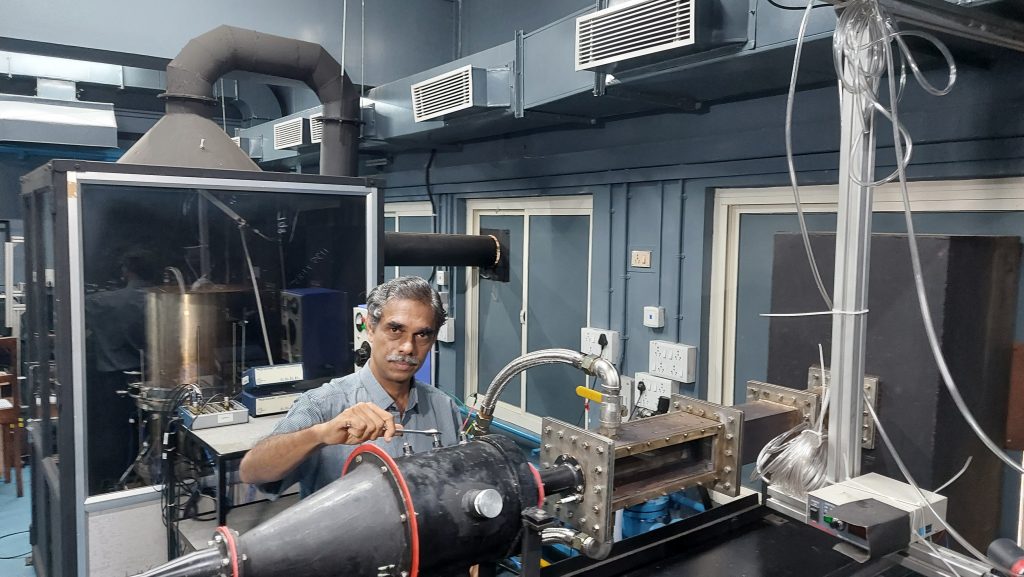
Being elected as a Fellow of the National Academy of Engineering (in the U.S), how did it feel? Was it always on your radar?
I had no idea about this! Now I know it is a big deal, not only in India, but even in the West. This is a rare honour and the top most, apparently, for an engineer. I was going about my work and I am truly grateful to everyone who has been on this journey with me. I had my phone off as usual when I went to sleep and the next morning, I got all these messages and missed calls. I had a busy day so I ignored it for a while but then it slowly hit me. I am just grateful that somewhere someone considered me worthy of being nominated for this honour. I guess it is because of the student-centric approach I have taken. In my group we stand up for each other and work together.
My father used to say that if you are riding a bicycle and you keep thinking about the potholes on the road, you will invariably and inevitably ride into them. There is wisdom in focussing on the road, and not on potholes. There are plenty of roads to ride on, after all.
A last question then, Sujith. What’s the secret sauce, a formula, so to speak, for success?
Well, there is no formula. There shouldn’t be one. Indian academia, particularly IITs, are incredible. We have the freedom to be who we are. And our campus is incredible. I take long walks, a piece of paper in my pocket, thinking, jotting down ideas. I am currently doing a week-long course. Back to being a student!
I was keen to do this because somewhere along the way I found that my work in critical transitions in complex systems can be applicable in several areas. As an aerospace engineer, I have applied it extensively to thermoacoustic instabilities in engines; we have a lot of good, helpful findings. But now, I am learning about climatic phenomena, monsoons and cyclones. Very different from the concepts that I am comfortable with. But finding that beautiful underlying unity in seemingly very diverse scientific phenomena, that’s what I am excited about. Recently, a student of mine and I started looking at diseases — COVID-19 in particular. Remember when we all thought the pandemic was over and then the delta wave happened? We thought we could predict situations like this through the analysis we do. But then, my student got the disease even as we were on the brink of a deep discovery. We recently got back on the horse and published that work. Our work will help in better predictions of such epidemics.
That said, there is no big secret or anything. Everyone has obstacles in their path. As a teacher and the principal investigator (PI) of the research lab, my job is to work together with my students and overcome these challenges. Never to abandon someone who is struggling with some aspect (of life or science) but to believe in them. And perhaps I should reiterate that everything is internal, even whatever you think of as “success”, is within you.
Thank you, Sujith, for this really inspiring session. We hope our readers enjoy this!
Preeti Aghalayam is a professor from the department of Chemical Engineering and the Global Academic Advisor of the Office of Global Engagement, IIT Madras.
BRIEFCASE
- Prof. R.I Sujith completed his undergraduate in Aerospace Engineering from IIT-M in 1988 and completed his Master’s degree and PhD from the Georgia Institute of Technology, Atlanta.
- Sujith has been elected as an International Member of the US National Academy of Engineering, which is the highest professional distinction given to an engineer. He is the second Indian to be elected in the aerospace section of the Academy and also the second professor from IIT-M to be given the honour, the first being Prof. Ashok Jhunjhunwala.
- He has been a member of the prestigious Indian National Academy of Engineering (INAE), a body that comprises India’s most distinguished engineers and scientists.
- He was awarded the ‘Lifetime Achievement Research Award of IIT Madras’ on the occasion of the 64th Institute Day in April this year.
- Sujith’s recently published research papers include the following: Imprints of log-periodicity in thermoacoustic systems close to lean blowout (published in February 2023), and Extreme COVID-19 waves reveal hyperexponential growth and finite-time singularity (published in April 2022).
